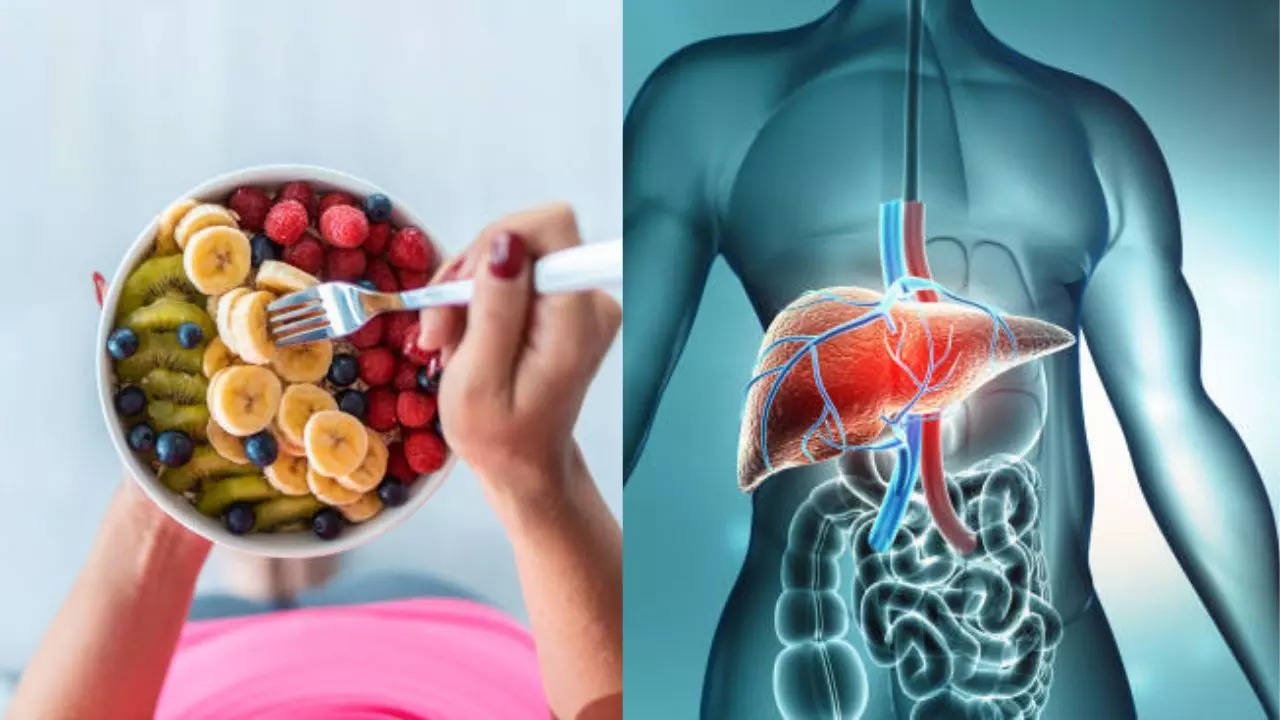
Unmonitored fruit consumption can also lead to digestive issues like bloating, diarrhoea, or even constipation
Eating fruits is among the best ways to maintain a balanced and healthy diet, apart from giving you energy, ensuring good digestion, and helping in weight loss. However, if you are eating fruit first thing in the morning, you might be in a bit of trouble. According to experts, these juicy, fresh, and sweet foods can also affect your health in a negative way, especially the liver.
“The problem is that the fructose, which is present in fruits, is not metabolizable, which means it cannot be broken down into smaller pieces,” informed Dr. Alok Chopra, cardiologist and functional medicine expert, on Instagram.
“Also, fructose cannot enter the bloodstream, so where did it go? It goes into your liver. That’s how we get fatty livers,” he added.
Can you go on a fruit diet for long?
Doing so is not at all recommended, said Dr. Chopra. “Over some time, a situation may come up that the fatty liver can lead to cirrhosis. Especially also with people who are eating foods that are high in fructose,” he said.
Unmonitored fruit consumption can also lead to digestive issues like bloating, diarrhoea, or even constipation, as they are packed with fibre and natural sugars and can trigger a laxative effect.
How do fruits affect your health?
According to Harvard Health, the human body handles glucose and fructose—the most abundant sugars that we get from diet—in different ways. Virtually every cell in your body breaks down glucose for energy. The only ones that can handle fructose are liver cells. What the liver does with fructose, especially when there is too much in the diet, has potentially dangerous consequences for the liver, the arteries, and the heart.
Fructose, also known as fruit sugar, was once a minor part of our diet. In the early 1900s, the average American took in about 15 grams of fructose a day, most of it from eating fruits and vegetables. Today we average four or five times that amount, almost all of it from the refined sugars used to make breakfast cereals, pastries, sodas, fruit drinks, and other sweet foods and beverages.
The entry of fructose into the liver triggers a series of complex chemical transformations using fructose, a carbohydrate, to create fat. This process is called lipogenesis, which gives your liver enough fructose, and tiny fat droplets begin to accumulate in liver cells.
Foods that are good for your liver
According to experts, since diet plays a major role in maintaining liver health, there are many foods, apart from fruits, that are known to improve liver enzymes, protect against fat buildup, and decrease inflammation and oxidative stress.
So, add some more high-fibre and protein-loaded foods along with fruits to your daily diet. A few of these include:
- Berries, including blueberries and cranberries
- Coffee and tea
- Grapes
- Pears
- Beetroot juice
- Cruciferous vegetables
- Nuts and seeds
- Fatty fish
- Olive oil
